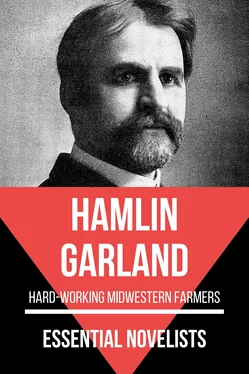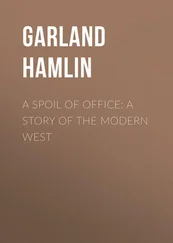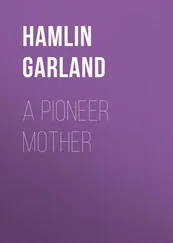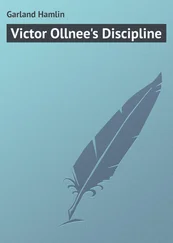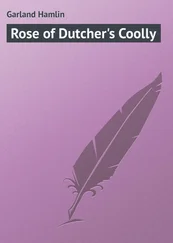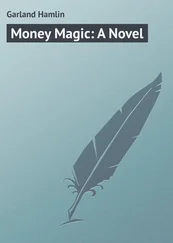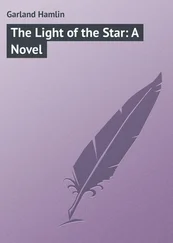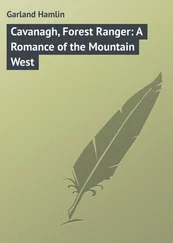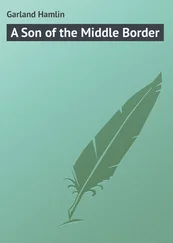As the seeding time came on, enormous flocks of pigeons, in clouds which almost filled the sky, made it necessary for some one to sentinel the new-sown grain, and although I was but nine years of age, my father put a double-barrelled shotgun into my hands, and sent me out to defend the fields.
This commission filled me with the spirit of the soldier. Proudly walking my rounds I menaced the flocks as they circled warily over my head, taking shot at them now and again as they came near enough, feeling as duty bound and as martial as any Roman sentry standing guard over a city. Up to this time I had not been allowed to carry arms, although I had been the companion of Den Green and Ellis Usher on their hunting expeditions in the coulee—now with entire discretion over my weapon, I loaded it, capped it and fired it, marching with sedate and manly tread, while little Frank at my heels, served as subordinate in his turn.
The pigeons passed after a few days, but my warlike duties continued, for the ground-squirrels, called "gophers" by the settlers, were almost as destructive of the seed corn as the pigeons had been of the wheat. Day after day I patrolled the edge of the field listening to the saucy whistle of the striped little rascals, tracking them to their burrows and shooting them as they lifted their heads above the ground. I had moments of being sorry for them, but the sight of one digging up the seed, silenced my complaining conscience and I continued to slay.
The school-house of this district stood out upon the prairie to the west a mile distant, and during May we trudged our way over a pleasant road, each carrying a small tin pail filled with luncheon. Here I came in contact with the Norwegian boys from the colony to the north, and a bitter feud arose (or existed) between the "Yankees," as they called us, and "the Norskies," as we called them. Often when we met on the road, showers of sticks and stones filled the air, and our hearts burned with the heat of savage conflict. War usually broke out at the moment of parting. Often after a fairly amicable half-mile together we suddenly split into hostile ranks, and warred with true tribal frenzy as long as we could find a stone or a clod to serve as missile. I had no personal animosity in this, I was merely a Pict willing to destroy my Angle enemies.
As I look back upon my life on that woodland farm, it all seems very colorful and sweet. I am re-living days when the warm sun, falling on radiant slopes of grass, lit the meadow phlox and tall tiger lilies into flaming torches of color. I think of blackberry thickets and odorous grapevines and cherry trees and the delicious nuts which grew in profusion throughout the forest to the north. This forest which seemed endless and was of enchanted solemnity served as our wilderness. We explored it at every opportunity. We loved every day for the color it brought, each season for the wealth of its experience, and we welcomed the thought of spending all our years in this beautiful home where the wood and the prairie of our song did actually meet and mingle.
We Move Again
One day there came into our home a strange man who spoke in a fashion new to me. He was a middle-aged rather formal individual, dressed in a rough gray suit, and father alluded to him privately as "that English duke." I didn't know exactly what he meant by this, but our visitor's talk gave me a vague notion of "the old country."
"My home," he said, "is near Manchester. I have come to try farming in the American wilderness."
He was kindly, and did his best to be democratic, but we children stood away from him, wondering what he was doing in our house. My mother disliked him from the start for as he took his seat at our dinner table, he drew from his pocket a case in which he carried a silver fork and spoon and a silver-handled knife. Our cutlery was not good enough for him!
Every family that we knew at that time used three-tined steel forks and my mother naturally resented the implied criticism of her table ware. I heard her say to my father, "If our ways don't suit your English friend he'd better go somewhere else for his meals."
This fastidious pioneer also carried a revolver, for he believed that having penetrated far into a dangerous country, he was in danger, and I am not at all sure but that he was right, for the Minnesota woods at this time were filled with horse-thieves and counterfeiters, and it was known that many of these landhunting Englishmen carried large sums of gold on their persons.
We resented our guest still more when we found that he was trying to buy our lovely farm and that father was already half-persuaded. We loved this farm. We loved the log house, and the oaks which sheltered it, and we especially valued the glorious spring and the plum trees which stood near it, but father was still dreaming of the free lands of the farther west, and early in March he sold to the Englishman and moved us all to a rented place some six miles directly west, in the township of Burr Oak.
This was but a temporary lodging, a kind of camping place, for no sooner were his fields seeded than he set forth once again with a covered wagon, eager to explore the open country to the north and west of us. The wood and prairie land of Winnesheik County did not satisfy him, although it seemed to me then, as it does now, the fulfillment of his vision, the realization of our song.
For several weeks he travelled through southern Minnesota and northern Iowa, always in search of the perfect farm, and when he returned, just before harvest, he was able to report that he had purchased a quarter section of "the best land in Mitchell County" and that after harvest we would all move again.
If my mother resented this third removal she made no comment which I can now recall. I suspect that she went rather willingly this time, for her brother David wrote that he had also located in Mitchell County, not two miles from the place my father had decided upon for our future home, and Samantha, her younger sister, had settled in Minnesota. The circle in Neshonoc seemed about to break up. A mighty spreading and shifting was going on all over the west, and no doubt my mother accepted her part in it without especial protest.
Our life in Burr Oak township that summer was joyous for us children. It seems to have been almost all sunshine and play. As I reflect upon it I relive many delightful excursions into the northern woods. It appears that Harriet and I were in continual harvest of nuts and berries. Our walks to school were explorations and we spent nearly every Saturday and Sunday in minute study of the country-side, devouring everything which was remotely edible. We gorged upon May-apples until we were ill, and munched black cherries until we were dizzy with their fumes. We clambered high trees to collect baskets of wild grapes which our mother could not use, and we garnered nuts with the insatiable greed of squirrels. We ate oak-shoots, fern-roots, leaves, bark, seed-balls,—everything!—not because we were hungry but because we loved to experiment, and we came home, only when hungry or worn out or in awe of the darkness.
It was a delightful season, full of the most satisfying companionship and yet of the names of my playmates I can seize upon only two—the others have faded from the tablets of my memory. I remember Ned who permitted me to hold his plow, and Perry who taught me how to tame the half-wild colts that filled his father's pasture. Together we spent long days lassoing—or rather snaring—the feet of these horses and subduing them to the halter. We had many fierce struggles but came out of them all without a serious injury.
Late in August my father again loaded our household goods into wagons, and with our small herd of cattle following, set out toward the west, bound once again to overtake the actual line of the middle border.
Читать дальше
